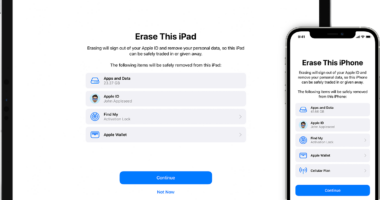
If you’re reading this story during a much-needed break at work, it might be best to keep quiet.
That’s because a new study suggests taking short breaks during the working day do not help you focus or wake up.
Researchers explored the effectiveness of 10-minute breaks on work performance in a simulated office environment.
They examined the cognitive function, motivation, mood, and central nervous system activity in 18 men aged 23 to 29 years old by taking blood tests and brain scans.
The participants completed office-like work, including nine cognitive tasks over seven hours, with 10-minute breaks given every 50 minutes.

If you’re reading this story during a much-needed break at work, it might be best to keep quiet. That’s because a new study suggests taking short breaks during the working day do not help you focus or wake up (stock image)
The findings, published in the International Journal of Psychophysiology, found regular short breaks induced mental exhaustion.
This in turn affected participants’ ability to focus and had an impact on cognitive functions such as attention, learning and visual recognition.
The study’s lead author Marius Brazaitis, from the Lithuanian Sports University, said: ‘Contrary to popular belief, our findings show that taking short breaks during the work day does not improve cognitive function or prevent fatigue.
‘Tasks that require high levels of mental effort deteriorated during the seven-hour period, which may be due to the brain’s high energy needs and its reliance on a steady supply of glucose and oxygen to maintain optimal cognitive performance.’
Analysis, published in the International Journal of Psychophysiology, found participants struggled to fully recover even after a four-and-a-half-hour rest.
Commenting on the research, Dr Colin Rigby, reader in Enterprise at Keele Business School, who was not involved in the study, said: ‘The idea that tasks can be broken down to fit within a pattern of breaks becomes a work-related task in itself, thus compounding the work pressure.
‘In work and organisational terms, Covid-19 was essentially the biggest experiment in new forms of work activity in human history and if it taught us anything, it is that the orthodoxy of formal patterns of work may not be the most effective or efficient, or even the best for human health.
‘Many workers don’t take breaks that are already scheduled, they eat lunch at their desks and don’t take their full quota of holidays.
‘Chopping and changing tasks with breaks can lead to task anxiety. By leaving a task when it is not complete, or at a natural stopping point to fulfill a break obligation, you are doing neither wholeheartedly but watching the clock.
‘Also, interrupted flow means that time is taken from task time, as you are trying to remember where you were and pick up on the thought processes when you return from the break, making you less efficient.’









